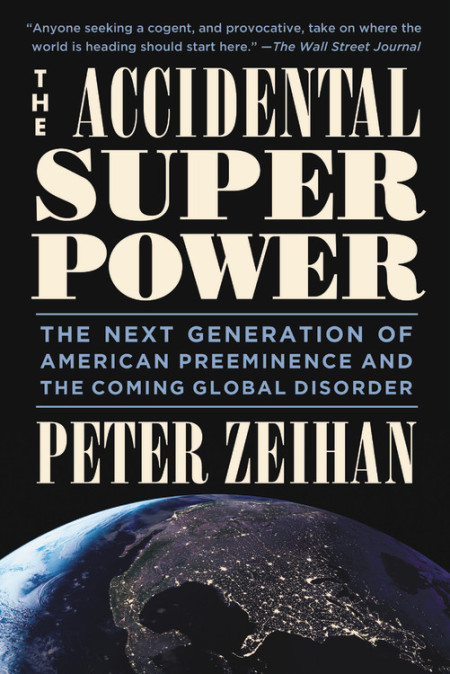Kings and Generals
Published 11 May 2021Start speaking a new language in 3 weeks with Babbel 🎉 Get 6 months FREE when you sign up for 6 months! ➡️ HERE: https://go.babbel.com/6plus6-youtube-…
Kings and Generals’ historical animated documentary series on the history of Ancient Civilizations continues with a video on the year 536 AD, which many historians consider the worst year in history, as plague, famine, volcanic eruption, and extreme weather patterns changed the fate of the millions, especially influencing Sassanid and Eastern Roman Empires.
Support us on Patreon: http://www.patreon.com/KingsandGenerals or Paypal: http://paypal.me/kingsandgenerals We are grateful to our patrons and sponsors, who made this video possible: https://docs.google.com/document/d/1o…
Art and animation: Haley Castel Branco
Narration: Officially Devin (https://www.youtube.com/user/OfficiallyDevin)
Script: Matt Hollis✔ Merch store ► teespring.com/stores/kingsandgenerals
✔ Podcast ► Google Play: http://bit.ly/2QDF7y0 iTunes: https://apple.co/2QTuMNG
✔ Twitter ► https://twitter.com/KingsGenerals
✔ Instagram ► http://www.instagram.com/Kings_GeneralsProduction Music courtesy of EpidemicSound
#Documentary #WorstYearInHistory #536
May 25, 2021
536 AD – Worst Year in History
“Latinx”
At Ace of Spades H.Q., Buck Throckmorton explains why “Latinx” is a silly word-like mouthing that we should not encourage anyone to use:
“Latinx” is a white supremacist term used by racist, left-wing Americans to marginalize Spanish speakers and to disparage their culture.
The term “Latinx” itself is overtly racist. Not only is Latinx not a Spanish word, it can’t even be pronounced in Spanish. How offensively paternalistic maternalistic mxternxlistic(?) is it of liberal, white Americans to rip the identity from brown-skinned people, and then impose on them a new identity, which is an unpronounceable collection of consonants … and THEN demand that Hispanics identify by this new, unpronounceable English word.
One of the embarrassing bigotries of left-wing, monolingual, white supremacists is that they are oblivious to the fact that the entire Spanish language is gendered. Because of their racist ignorance of the Spanish language, they don’t understand that the gender of a noun is indicated by the definite article (“el” / “la” ) or the indefinite article (“un” / “una” ) more so than if a word ends in “a” instead of “o”.
American lefties have changed exactly one Spanish word to gender-neutral, and with that done, they now demand that Spanish speakers somehow converse like weird, left-wing English-speakers and remove all gender from their speech. This simply isn’t possible in Spanish. So, in effect left-wing white supremacists are shaming Spanish language speakers for using their native language. I can’t believe such ugly bigotry exists in 21st Century America.
In addition, by imposing the transsexual term “Latinx” on all Hispanics, left-wing whites are asserting that all Hispanics are transsexuals, which could be culturally insulting. A liberal, white American woman may think she is complimenting an Hispanic man by telling him that she sees him as no different than a castrated cross-dresser, but he probably won’t take it as a compliment. But to be fair, most of the men in the orbit of woke white women would be flattered to be thought of that way.
Wait, Go Back! The SMLE MkIII* Wartime Simplification
Forgotten Weapons
Published 10 Feb 2021http://www.patreon.com/ForgottenWeapons
https://www.floatplane.com/channel/Fo…
Cool Forgotten Weapons merch! http://shop.bbtv.com/collections/forg…
The British entered World War One with a technically excellent rifle, with lots of bells and whistles. By 1916, the war was taking a previously unimaginable toll on the industrial capacity of the Empire and rifle production had to be economized. This led to the adoption of the MkIII* pattern of the Lee Enfield, to reduce cost and speed up production. The MkIII* omitted the windage adjustments on the rear sight, the front and rear volley sight elements, and the magazine cutoff. Around the same time, stock discs stopped being stamped with unit information (to avoid giving military intelligence of troop distribution when rifles were captured) and eventually deleted entirely.
The Pattern 1907 bayonet was also changed, although this does not coincide with the MkIII* rifle. In 1913, the British decided to delete the quillon from the standard bayonet. A great many bayonet with quillons were already in service, and those would be used in World War One, although many were modified in the field to cut off the quillons to avoid them hanging up on barbed wire or other obstacles.
Contact:
Forgotten Weapons
6281 N. Oracle #36270
Tucson, AZ 85740
QotD: Doctors and individual freedom
The medical attitude, and the reason why doctors are so vulnerable to this anti-liberty political agenda, is that doctors typically see people at their weakest, at times when they are positively begging to be told what to do by the god-almighty doctor. Doctors are thus pre-disposed to neglect the distinction between them advising people what to do, and simply telling them, for their own good.
Brian Micklethwait, “Curbing liberty — except when they should”, Samizdata, 2005-10-10.
May 24, 2021
“The revolution will be defeated when people stop being scared”
Sean Gabb discusses some outrageous elements of the ongoing cultural revolution against freedom of speech in Britain, the United States and many other western nations:

David Hume Tower at the University of Edinburgh (listed building number 50189).
Photo by Enric via Wikimedia Commons.
If I am a self-employed plumber or electrician, I can speak my mind and laugh at the complaints. If, like the great majority in this country, I am a salaried employee — whether in the state or private sectors is unimportant: the pressures to conformity are the same in both sectors — I must be careful what I say. I am scared of the sack. I am scared of sudden redundancy. I am scared of missing out on promotions. I am scared of generally unfair treatment because of my opinions. I therefore hide my opinions. The Peter Tatchells among us then look round complacently, telling themselves and each other that silence equals agreement, and that the few squeaks of opposition are from “disreputable extremists.”
This explains the present unbalanced debates over slavery and colonialism. Take these examples:
- First, in September 2020, the David Hume Tower at Edinburgh University was “denamed”. Someone had bothered to read the 1748 essay “Of National Characters”, and found in one of its footnotes an unfashionable statement about race. It was at once set aside that Hume was a philosopher of at least considerable note. More important was the “non-overt disrespect, offence, and racism that Black students have to go through at the University of Edinburgh”.
- Second, the Music Department at Oxford is presently worried that its curriculum “structurally centres white European music”, and that this causes “students of colour great distress”. It therefore wants to change its focus from the European classical tradition to things like “Artists Demanding Trump Stop Using Their Songs”. It also wants to discourage students from studying musical notation, as this is a “colonialist representational system”.
I could give a third illustration, and a fourth. I could fill a pamphlet with more. Some would be more alarming, though few less absurd. But these two can stand well enough for all the others. What makes these debates so irritating is that they are not debates. One side can put its case just as it pleases. The other is reduced to accepting all the main charges and begging for mitigation: “What Hume said was evil and unpardonable — but he was important for other things.” Or: “I feel your pain, but Mozart owned no slaves, and everyone knows that Beethoven was really black.” Because it has been so humbly begged, full mitigation will, in both cases, be granted. Hume will continue to be studied in the universities. Music students at Oxford will continue to use the standard notation and to analyse the usual classics. But preventing these things was never part of the agenda. The agenda was and is to transform what were honoured or unquestioned parts of our civilisation into things useful but more or less suspect, things subject to a toleration that may be varied or withdrawn at any time without notice.
It should be plain that we are, in both England and America, living through a revolution. This is not a normal revolution as these things are considered. Unlike in France or Russia, there has been no overthrow of an established order, no burst of state violence, no establishment after that of an overtly new order. There are no secret police. There are no labour camps. No one is beaten to death in a police cell. All the same, we are living through a revolution. It is a revolution that has involved the gradual capture of education, the media, the administration, the charities and the more permeable religious institutions, and the recent aligning of the larger or more glamorous business concerns. I see no point in discussing its ultimate objects. I am not sure if these are wholly agreed. But its provisional object is the destruction of our traditional identity, and of our liberty so far as this stands in the way of that provisional object.
These two elements of the provisional object are equally important. Our civilisation is being pulled apart because doing so strips away the mass of associations that, left in place, might hold up the more alarming parts of the transformation. Opposition is so feeble not only because that is all that will be tolerated: feeble opposition is all that can be tolerated. This is a revolution in which opponents are not murdered, but only scared into silence. They are scared into silence chiefly by fear of destroyed or blighted careers. The revolution will be defeated when people stop being scared. Then, there will be vicious and unrelenting public mockery, and commercial boycotts, and shareholder rebellions, and lost elections, and the general feeling of solidarity and impunity still sometimes found in a football stadium.
History Buffs: Midway Part One
History Buffs
Published 21 May 2021Thank you guys so much for your patience. Quarantine has made somethings difficult and I know its been a while but it’s finally here! I hope you enjoy it!
You can join Nebula today and get Curiosity Stream at 26% off for a year! Click on the link below
http://curiositystream.com/historybuffs
Part Two of this review will be out next Friday on the 28th of May!● Follow us on Twitter: https://twitter.com/HistoryBuffs_
The hard core of “mostly peaceful protest” activists
In the most recent Libertarian Enterprise, Sarah Hoyt explains why the same people seem to show up at “mostly peaceful” riots protests in so many different cities and even in the rare cases they’re arrested, are quickly bailed out again:

“antifa 8973ag” by cantfightthetendies is licensed under CC BY 2.0
One of the advantages of the collectivists is that they organize like nobody’s business, while we liberty minded … Well — pats heads all around — well, you guys are adorable, but the individualists failed to organize, okay.
Now, while many of you translate this to a paramilitary clash and panic, don’t. Most of their supporters aren’t nor will they commit violence, unless the can do it when no one is looking, sneakily, and against someone old, disabled, frail or very young.
Most of their supporters are in fact the “go alongs to get along” who just want to be “nice people” by siding with lunatics who want to put a boot on their necks. Oh, they also want to be smart because their college professors told them every “very smart” person believes in Marxism. This is why at the back of their brains every single one of the infantile “activists” thinks he or she will be in charge and not one of the lumpenpoletariat. No, they have never looked at actual communist countries, and if they did, as their panic at the Xi-flu proved, they don’t get statistics or numbers at all.
So, yeah, the people they are using and weaponized-and-paid psychopaths, whom they bus from city to city. They’re armed and well organized partly because they do this all time and are given weapons and training. They’re very fearsome FOR ONE CITY AT A TIME.
In other words they are a Potemkin army, raging across the country to intimidate the citizens. Which is why they have to punish Kyle Rittenhouse, because he pierced the paper silhouette. And why blue states refuse to arrest the rioters. They have very few of them. They’re the precious.
It does work on corporations and — apparently — Supreme Court Judges who, being in a highly social profession just buy what the news tell them and don’t investigate anything for themselves.
Look, I don’t think this bullshit will hold. And it’s part of the reason I think we’re going to have a brief, intense, localized clash.
This is not the seventies. They really had a majority of the indoctrinated youth then, and the youth then were a majority. With the attendant side effect that the youth then hadn’t been raised as little emperors, because they were the all-too-precious single offspring.
Those were the real Marxist riots. This is the Memorex. And like Chinese troops clashing with Indian troops, their rank and file are more likely to cry for their mommies, if they meet real opposition.
They have the psychos they train and bus around and which have a rap sheet long as their arm, and then they have the daft survivals of the sixties, at protests with their oxygen bottles and walkers.
And they have the get alongs. Who are useless in battle, but quite good at coordinated action on other fronts.
HMS Ark Royal (91) – Guide 100 (Extended)
Drachinifel
Published 15 Dec 2018HMS Ark Royal, an aircraft carrier of the Royal Navy, is today’s subject.
Want to support the channel? – https://www.patreon.com/Drachinifel
Want to talk about ships? https://discord.gg/TYu88mt
QotD: The internet is rewiring our brains
… there’s a reason 99.998% of the Internet is porn, and that reason is: The Internet, itself, has rewired our brains.
Yeah, I’m a history guy, not a biologist, and no, I can’t show you the specific spots on the fMRI that prove it, but look, you can test this yourself. Ever been around kids? It’s easiest to see in the early grades, so go to a daycare or afterschool program. Trust me, you can pick out right away, with 100% accuracy, the kids who spend more than 3 hours a day at daycare. This is not a knock on daycare providers, lots of whom are good, dedicated people doing hard work. Rather, it’s a knock on the situation, because if a kid’s in daycare that long, it means the parents both work long-hour, high-stress jobs. How do you think the kid’s home life is, under those conditions?
You know as well as I do that when the kid gets home from day care, he gets plunked in front of a tv, a video game, an iPad, a smartphone, some kind of glowing box. That’s what’s rewiring their brains. That’s not “ADHD,” which doesn’t really exist. “ADHD” is a cope, a bit of shorthand, to describe what’s actually going on, which is: These kids’ heads have been rewired. They need constant stimulation. Everything needs to be in five-minute chunks for them, because they’ve never known anything different. Asking them to sit down and pay attention for any length of time – say, in a 60 minute lecture, like our old Prussian (from the 18th century!) system requires – is like asking one of us to suddenly run a marathon, or bench press 300 lbs. It can’t be done; we don’t have the equipment.
Severian, “Bio-Marxism Grab Bag”, Founding Questions, 2021-01-21.
May 23, 2021
Portlanders “have developed rituals, devotions, and self-criticisms to fight ‘systemic racism’ and ‘white supremacy'”
In City Journal, Christopher F. Rufo talks about the “child soldiers of Portland”:

“Portland, Oregon” by Ben Amstutz is licensed under CC BY-NC 2.0
There are only a few places on earth where radicals and their children ritualistically burn the American flag and chant “Death to America”: Tehran, Baghdad, Beirut, Kabul, Ramallah — and Portland, Oregon.
The City of Portland, a cloud-covered metro on the south bank of the Columbia River, has become known for its political protesters. Anarchists, Communists, ecofascists, and various other agitators regularly denounce the police, politicians of both parties, and America itself, and flag-burning has become part of the protesters’ liturgy. Last summer, protesters associated with Antifa upped the ante with chants of “Death to America” and participated in months of violent protests to avenge the death of George Floyd while he was in police custody in Minneapolis. Children as young as four marched with the crowd to the federal courthouse, raising the Black Power fist and chanting “Fuck the Police!”
Famously the “whitest city in America”, Portland has become the unlikely headquarters of race radicalism in the United States. The city has elevated white guilt into a civic religion; its citizens have developed rituals, devotions, and self-criticisms to fight “systemic racism” and “white supremacy”. The culminating expression of this orthodoxy is violence: street militias, calling themselves “antiracists” and “antifascists”, smash windows and torch the property of anyone transgressing the new moral law.
We might be tempted to dismiss this as the work of a few harmless radicals “keeping Portland weird”, but in recent years, their underlying ideology on race has become institutionalized. The city government has adopted a series of Five-Year Plans for “equity and inclusion”, shopkeepers have posted political slogans in their windows as a form of protection, and local schools have designed a program of political education for their students that borders on propaganda.
I have spent months investigating the structure of political education in three Portland-area school districts: Tigard-Tualatin School District, Beaverton School District, and Portland Public Schools. I have cultivated sources within each district and obtained troves of internal documents related to the curriculum, training, and internal dynamics of these institutions. We can best understand the political education program in Portland schools by dividing it into three parts: theory, praxis (or practice), and power. The schools have self-consciously adopted the “pedagogy of the oppressed” as their theoretical orientation, activated it through a curriculum of critical race theory, and enforced it through the appointment of de facto political officers within individual schools, generally under the cover of “equity and social-justice” programming. In short, they have begun to replace education with activism.
The results are predictable. By perpetuating the narrative that America is fundamentally evil, steeping children in race theory, and lionizing the Portland rioters, they have consciously pushed students in the direction of race-based “revolution”. In the language of the Left, the political education programs in Portland-area districts constitute a “school-to-radicalism pipeline”: a training ground for child soldiers. This is not hyperbole: some of the most active and violent anarchist groups in Portland are run by teenagers, and dozens of minors were arrested during last year’s riots. These groups have taken up the mantle of climate change, anticapitalism, antifascism, and Black Lives Matter — whatever provides a pretext for violent “direct action”.
Contrary to those who believed that the end of the Trump presidency would bring a “return to normalcy”, the social and political revolution in Portland has only accelerated under President Joe Biden. On Inauguration Day, teenage radicals marched through southeast Portland, smashing the office windows of the state Democratic Party and unfurling large banners with hand-painted demands: “We don’t want Biden, we want revenge”; “We are ungovernable”; “A new world from the ashes”. Intoxicated by revolution and enabled by their elders, Portland’s kids are not all right.
AF is short of fresh water – WW2 – 143 – May 23, 1942
World War Two
Published 22 May 2021Soviet Foreign Minister Molotov arrives in London to meet with Churchill, but at home in the USSR the Germans have launched an instantly successful offensive. In North Africa and Malta the British are building up, unaware that Erwin Rommel is just about to strike, and an American ruse discovers secret Japanese attack plans.
(more…)
Peter Zeihan’s geographic-based perspective on world history
In another of the reader-contributed book reviews for Scott Alexander’s Astral Codex Ten, a look at The Accidental Superpower: The Next Generation of American Preeminence and the Coming Global Disorder by Peter Zeihan:
Zeihan’s primary models are influenced by his geographic-based perspective on how our world works. As he puts it in the introduction, “Geopolitics is the study of how place [rivers, mountains, etc.] impacts … everything.” Early chapters discuss what he calls the balance of transport, which is roughly easy transport within a country (for economic development and forming political and cultural ties) and hard transport from outside of it (for defense). These transport issues are inherently tied to geography. What’s the best way to move things? Water-based transportation is extremely cheap. Think 17 cents per container mile vs. $2.40 for semis on an American highway, with a more extreme disparity for other countries, trade between continents, and populations in hard-to-access places. On the defensive side of that equation, geographic features on borders such as deserts, mountains, and oceans get Zeihan’s attention.
He uses ancient Egypt to illustrate a great balance of transport. The reliable water and rich soil of the Nile’s floodplains created near-perfect farming conditions, and the Nile itself allowed easy travel and trade throughout the valley. Combined with impenetrable desert borders, this geography “was one of the few places in the world where there was enough water to survive, and enough security to thrive.” Because of that, the “geography nearly guaranteed that the Egyptians would be on the road to civilization.” He gives us a quick run through Egyptian history to tell a story of that road, beginning with the settlement of the area about eight thousand years ago, consolidation into a single kingdom more than five thousand years ago, and then stagnation as the increasingly centralized government devoted more labor to monument building rather than technological progress, eventually being conquered by seafaring people seeking to rule the Mediterranean.
*****
To escape our pre-civilization/hunter-gatherer days – Zeihan refers to this as “when life sucked” – the mechanism that he identifies is basically a typical economist’s story. Sedentary agriculture as invented by the Egyptians and other ancient cultures became a transformative technology, letting populations grow and devote labor and resources to non-farming purposes. From this, we got specialization, increased production, trade (particularly where there was easy transportation – population centers were always near water) and capital formation in a self-reinforcing cycle. For thousands of years after this transformative technology was introduced, incremental improvements in agriculture and other areas followed, but “a robust, secure, and sustainable food supply” was the base of any civilization.
This cycle accelerated when we harnessed a couple of new packages of technologies over the last six-hundred years. He lumps the source of much progress together with the terms deepwater navigation and industrialization. The first is everything needed to sail the seas, from shipbuilding capabilities to compasses to weapons. Industrialization is exactly what you’re thinking of. He simplifies it as the combination of labor and capital with higher-output energy sources like oil and coal to put productivity on steroids.
Zeihan gives us a story of the Ottoman Empire entering a prolonged decline as deepwater navigation technologies took off in the fourteenth century. These technologies enabled the European powers (first Portugal and Spain, and then England) to capture increasing shares of trade with Asia, dropping prices in Europe and depriving the Ottomans of much of the income to which they had grown accustomed. Most significantly, they turned “the ocean from a death sentence to a sort of giant river.” Trade became global, but it was still mostly among people with nearby water-based transportation.
Industrialization technologies changed that. Steam and coal brought power to mining and transportation, and along with interchangeable parts, improved manufacturing. Chemical breakthroughs led to fertilizers (improving crop yields), and with more transportation options, more land was brought into cultivation. Improvements in cements in the 1820s enabled larger buildings and infrastructure. These technologies continually improved the productivity cycle that began with agriculture.
Zeihan concludes a chapter on America with the “nuts and bolts” of how countries rule the world. “The balance of transport determines wealth and security. Deepwater navigation determines reach. Industrialization determines economic muscle tone. And the three combined shape everything from exposure to durability to economic cycles to outlook.” As we’ll see shortly, he really likes America’s position on all of these factors. But first, we need to understand the other analytical tool that informs Zeihan’s model.
Where is Scandinavia?
CGP Grey
Published 25 Mar 2015Grey Merch: https://cgpgrey.com/merch
Grey on Twitter: https://twitter.com/cgpgrey
QotD: The psychological impact of extended lockdowns
Claudio Grass (CG): A lot has been said and written about the economic and financial impact of the covid crisis and all the lockdowns and restrictions that came with it. However, the mental health implications haven’t really received the attention they arguably merit, at least not by mainstream media or government officials. Over the last year, we saw self-reported depression rates creep up in many Western nations, while excessive alcohol consumption and the abuse of prescription drugs also jumped. Do such trends raise concerns over longer-term problems or will we all simply snap back to normal once the crisis is over?
Theodore Dalrymple (TD): The first thing to say is that I do not like the term “mental health.” Was Isaac Newton mentally healthy, or Michelangelo? I think part of the problem is very concept of mental health. It implies that there is some state or condition of mind deviation from which is analogous to illness. Once this idea takes hold, it is clearly up to an expert to cure the person, or better still prevent him from getting ill in the first place. This expectation cannot be met, but the idea that it can be makes people more fragile.
Second, people clearly vary much in their response to confinements, lockdowns, closures of resorts of entertainment, etc. For myself, I have reached the age of misanthropy or self-sufficiency when these things make comparatively little difference to my life. I have plenty of space and plenty of things to do, in essence reading and writing. But that does not make me mentally healthier than a young man who is frustrated because he cannot play football with his friends and becomes ratty – moreover living in a very confined space.
Depression is so loosely defined a term that it has become almost valueless as a diagnosis. How often have you heard someone say “I’m unhappy” rather than “I’m depressed?” The semantic shift is very important. The proper response to someone who says that he is depressed is to give him antidepressants, even though these don’t work in the majority of cases, except as a placebo, and have potential side-effects. It is always tempting for people who are unhappy to drink alcohol – to drown their sorrows, as we say. Of course, if you drink too much, you might become really and truly depressed. A person who did not respond to the current situation with a little gloom would be odd.
Claudio Grass, “Theodore Dalrymple: Self-Control And Self-Respect Have Become Undervalued”, The Iconoclast, 2021-02-17.
May 22, 2021
Guns in the Movies – like this S&W Model 29
Forgotten Weapons
Published 10 Feb 2017Today we have not so much an examination of a specific firearms, but rather a look at how Clint Eastwood’s film portrayal of Dirty Harry Callahan drove a huge wave of popularity of the Smith & Wesson Model 29 — “the most powerful handgun in the world.”
http://www.patreon.com/ForgottenWeapons
Cool Forgotten Weapons merch! http://shop.bbtv.com/collections/forg…
If you enjoy Forgotten Weapons, check out its sister channel, InRangeTV! http://www.youtube.com/InRangeTVShow











